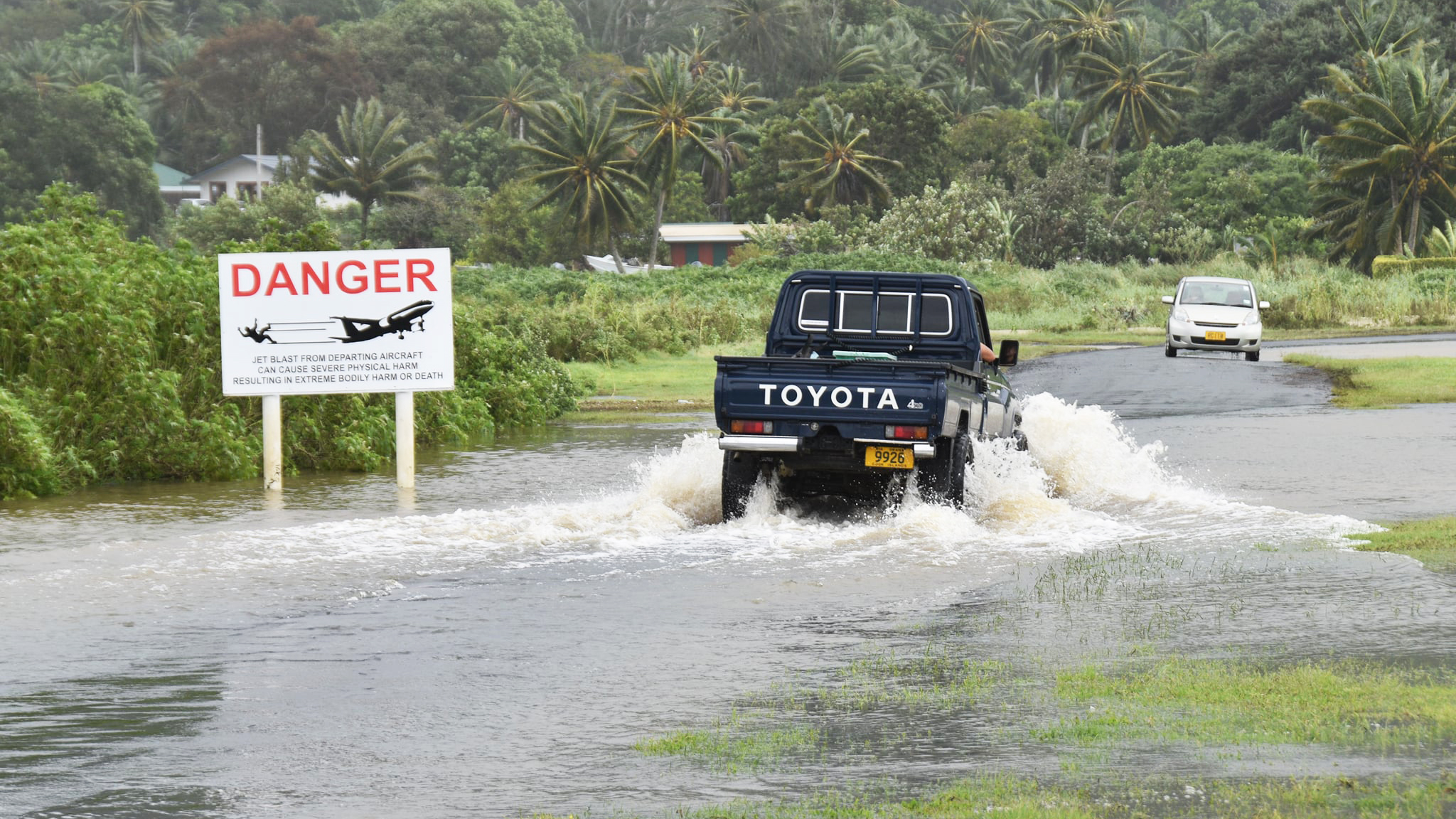Feb ‘volatile’ weather month
Thursday 27 January 2022 | Written by Al Williams | Published in National, Weather

PHOTO: MELINA ETCHES
Cook Islands is being warned to be prepared as the nation nears the height of cyclone season following a week of challenging weather conditions.
While the country is expected to have a reduced risk of tropical cyclones, according to New Zealand’s National Institute of Water and Atmospheric Research (NIWA) outlook, Cook Islands Meteorological Service director Arona Ngari says February has always been a volatile month for the nation.
“… February has always been a volatile month for as us in the past. With this in mind, the best we can do is prepare in the best possible way to keep safe from any similar weather conditions for the coming months.”
Ngari’s words follow a tropical depression which left a trail of destruction across Rarotonga earlier this week.
The intensity of TD05F that peaked on Friday cannot be compared to fully fledged cyclones the country has faced in the past but brutal winds, rain and seas pounded the island.
Waves at the high tides smashed onto Avatiu and Avarua harbour heaving ashore debris – tree trunks, branches and natural material that had been dragged from the hillsides into the streams and gushed out into the sea where it was promptly dumped back onto shore by the sea surge at both harbour sites.
“As we are in La Nina episode, cyclones have formed to the west of the dateline,” Ngari said.
“At the latter period of the cyclone season, there is a tendency for the warm pool of water to drift over and east of the dateline.”
The NIWA and MetService October assessment of named tropical cyclone (TC) activity indicates nine to 12 cyclones could occur in the Southwest Pacific basin between November 2021 and April 2022.
The report said most islands to the east of the International Date Line, including Cook Islands, parts of French Polynesia, Samoa and American Samoa, are expected to have reduced TC risk for the coming season.
However, despite the risk reduction in some locations, cyclones are still expected for countries that typically experience one or more named cyclones per year, the report said.
Ngari said although the risk of TCs is enhanced from February to April, Cook Islands should prepare for the whole period of the cyclone season – November to April.
Of the 12 cyclones expected in the region, two or less are expected for the Cook Islands.
Ngari said those cyclones would likely occur between February and April.
“I just want to encourage everyone to always be wary of severe weather in our small nation and to be proactive in our preparation for such events.
“Always advise your friends, families and visitors to keep away from vulnerable areas and to stay safe at all times.”
Past seasons with conditions similar to present suggest several TCs that develop could intensify to at least category 3 strength.
This season, at least three TCs are anticipated to reach or exceed category 3 strength, with mean wind speeds of at least 119 kilometre per hour.














































